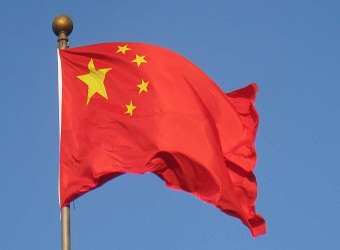Chinese business has come to a standstill as half the population travels over a one-week public holiday. But that quietude is expected to last several more weeks.
Although the Chinese will head back to work and school on Monday, their country is expected to remain in a holding pattern ahead of a pivotal Communist Party Congress set to start later this month.
“Commentators and markets rightly assume that the authorities are consumed by this transition and that all other policy matters are on the back-burner or in lock-down until after the Congress,” Freya Beamish, Pantheon Macroeconomics’ chief Asia economist, wrote in a recent note.
The once-in-five-years meeting will usher in leadership changes that are likely to see incumbent President Xi Jinping extend his term and consolidate power. The coming years of Xi rule will be critical for the world’s second-largest economy as it grapples with the fallout from three decades of unbridled growth. As Xi — the most powerful Chinese leader in decades — embarks on a new era, the meeting will review “faulty” outcomes from the economic reforms and review if China needs a new direction, said independent economist, Andy Xie.
As Xi — the most powerful Chinese leader in decades — embarks on a new era, the meeting will review “faulty” outcomes from the economic reforms and review if China needs a new direction, said independent economist, Andy Xie.
China undertook a series of market reforms in the last three decades that propelled the Communist country to the spot of the world’s second largest economy.
Market watchers, however, are concerned about the nation’s debt-fueled growth, industrial overcapacity and capital outflows that may potentially spur a global economic crisis.
The Communist Party has been working to curtail its companies’ international deal making over the last year, but major initiatives have slowed ahead of the Congress. That push is likely to pick up again in the fourth quarter, said Chunshek Chan, Dealogic’s global M&A research head.
No matter the macroeconomic concerns, the only thing on Beijing’s mind at this time is consolidating power in the country, Xie said: “It’s much more important now to strengthen the control of the Communist Party than anything else.”
“The key is to have the Communist Party as a coherent organization to control everything in the society — that seems to be the case. The people at the top worry about the stability. Stability is always number one in China,” added Xie.
“Beijing is going to be very motivated to make sure that there’s market stability and growth and positive newsflow in and around the very important October Congress and political meeting,” said David Riedel, president and founder of Riedel Research Group.
The trend is likely to persist for weeks after the event, he added.
Although many have deemed the party meeting to be a “non-event” — with mostly pre-determined outcomes well-anticipated ahead of the meeting — China nonetheless is on a security lockdown.
Police from other parts of China have been sent to the capital to reinforce security, Reuters reported.
The censors are also working hard. In recent months, China has raised the pressure on the country’s internet space.
Chinese authorities said last month they have handed down maximum fines to the operators of three major social-media platforms in the country for failing to deal with pornography, violence and other banned content on their sites. Many posited such moves were an attempt to exert control ahead of the Communist gathering.
On the environmental front, China is known for its efforts to clean up air quality when important events are held in Beijing. This time, steel mills near the capital have been ordered to cut output a month earlier than previously scheduled, Reuters reported.
China’s Maritime Safety Administration is also considering restricting traffic at ports handling chemical materials along the Yangtze River between October 11 and 28. After the agency issued an internal document about the possible restrictions, spot prices of certain chemical products jumped as traders rushed to ship before the measures kicked in.
Although that area is not close to Beijing, the curbs are likely being considered as a precaution against chemicals triggering safety breaches that could distract from the national event. The measure applies to loading and uploading of “chemicals considered potentially dangerous,” according to consultancy Wood Mackenzie.
Between the recent holiday and the Congress-influenced caution, China could see “a de facto pause to most petrochemical businesses for October,” Wood Mackenzie analyst Salmon Lee wrote.
Source: CNBC
